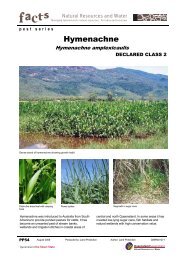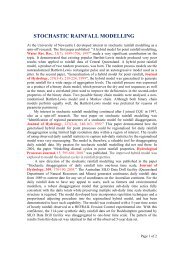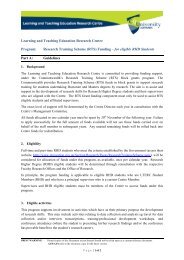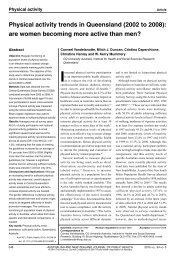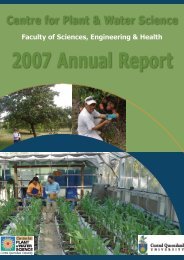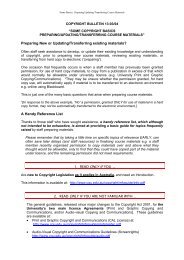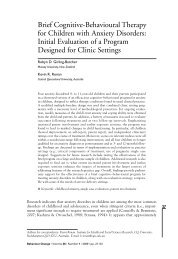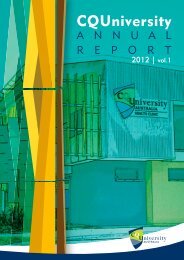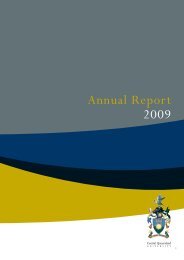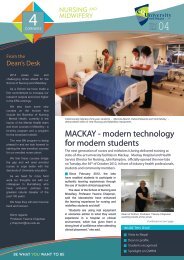Centre for Plant & Water Science - Central Queensland University
Centre for Plant & Water Science - Central Queensland University
Centre for Plant & Water Science - Central Queensland University
Create successful ePaper yourself
Turn your PDF publications into a flip-book with our unique Google optimized e-Paper software.
<strong>Centre</strong> <strong>for</strong> <strong>Plant</strong> & <strong>Water</strong> <strong>Science</strong> 2008 Annual Report<br />
HYDROPONIC PRODUCTION OF A LEAF VEGETABLE PAK CHOI<br />
(Brassica rapa L.CHINESIS GROUP) GROWN WITH BOTH<br />
CHEMICAL (INORGANIC) FERTILIZER AND VERMICAST<br />
EFFLUENT<br />
SUMMARY<br />
Some effects of vermicompost effluent (vermiliquor), <strong>for</strong>med during the breakdown of<br />
organic wastes by earthworms (vermicomposting), on plant growth and nutrient uptake have<br />
been evaluated in a series of experiments.<br />
The overall purpose of the project is to develop an organic alternative to conventional<br />
inorganic solutions <strong>for</strong> hydroponically-growing plants and to <strong>for</strong>mulate an organic fertilizer<br />
<strong>for</strong> the hydroponic production of Pak Choi.<br />
This project is the first to quantify how vermiliquor influences plant growth. By<br />
manipulating such parameters as pH, pH-buffers, ratio of dilution (electrical conductivity),<br />
aeration, and also differences in the type of composting process and the kind of organic<br />
wastes from which vermiliquor derived, growth of hydroponic vegetables can be modiifed.<br />
Worm and vermiliquor production also depend on season and source of food wastes.<br />
The experiments monitored the contribution of the parameters of nutrient solution like<br />
temperature, electrical conductivity, dissolved oxygen, nitrate, ammonium, potassium and<br />
external parameters like shading/solar activity and temperature on growth characteristics<br />
(growth period, leaf area, shoot and root weights).<br />
To increase commercial viability of the project the trial experiments were carried out in<br />
commercially adopted nutrient film technique and pot systems under different climatic<br />
conditions on both batched vermiliquor and in vivo vermiliquor from vermitanks directly<br />
linked to the hydroponic system. The latter, thus created a system of a ‘live’ vermiliquor<br />
recirculating between vermipits and hydroponic units.<br />
All physical, chemical and favourable visual differences of Pak Choi, hydroponically-grown<br />
with organic vermiliquor, compared to a conventional inorganic fertilizer Boxsell.<br />
PROJECT STAFF Principal Investigator:<br />
Co-Principal Investigator:<br />
Others:<br />
FUNDING RIRDC<br />
INCOME $131,100<br />
Elena Churilova<br />
Prof David Midmore<br />
Brock McDonald<br />
49




